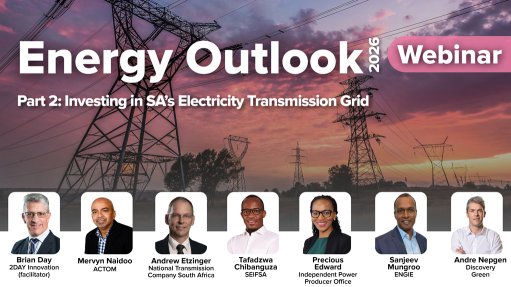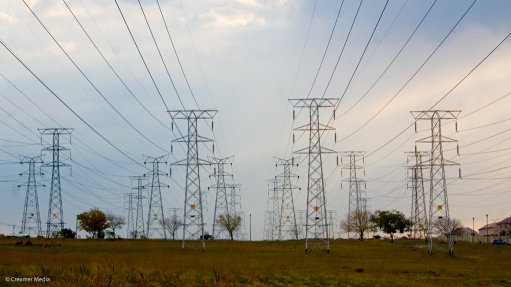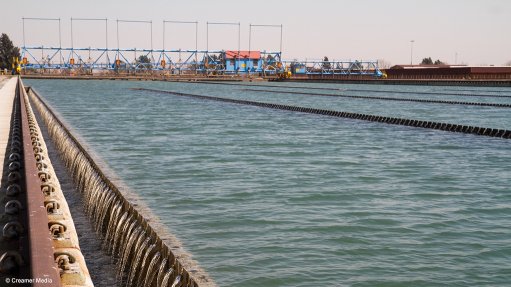Wastewater use in desalination, a viable drought solution
Water treatment supplier Quality Filtration Systems (QFS) has designed a solution-based technology – the Coastal Drought Buster – for coastal towns to augment their conventional water sources.
The Coastal Drought Buster combines sea water desalination with wastewater reuse as a more sustainable solution for water security, explains QFS MD Herman Smit.
The intention of the technology is to have desalination available during drought to provide water security, and cost-effective potable water outside drought conditions.
Using desalination as a decentralised water treatment solution will provide water security for the immediate area and ensure less dependence on pipe network maintenance.
Smit says it is not feasible to solely rely on wastewater reuse because the water used for that is not as accessible as sea water, as the latter is more accessible, owing to its abundance and the logistics of not having to transport water to the desalination plant.
“Sea water desalination will always be part of the total solution,” he claims.
Sea water desalination plants can be situated only next to the ocean and abstracted through wells, open sea intakes or surface structures. The potable water produced through sea water desalination must be close to the end-user to make it affordable, compared to surface water, which is pumped over long distances.
Domestic wastewater reuse in residential areas and small businesses is fairly simple, as the dissolved solids are low and require only low-pressure membranes for purification.
However, industrial water is mostly more complex to reuse, as it contains a mixture of biological and chemical contaminants specific to each waste steam.
Municipal and industrial wastewater should be reused and included in the list of sources available for the distribution of potable water through the municipal network. Unfortunately, reusing municipal wastewater is deemed risky because of micropollutants, such as pharmaceuticals, Smit adds. The treatment of waste water to potable quality is done with mature technology and through a multibarrier approach to remove any contamination risk.
In South Africa, the water industry needs the support of government to provide a similar financial structure that the energy sector was provided with in terms of financial guarantees on offtake agreements. In theory, decentralised desalination, and reuse solutions up to ten-million litres a day can be implemented in 12 to 18 months, providing a much faster turnaround solution than the megaprojects that aim to centralise water treatment.
“It would take a few years to alleviate the national water shortages, but the smaller decentralised plants will remove the pressure on the current bigger plants. Immediate benefits will be realised, consequently removing pressure on the distribution of water over long distances,” he concludes.
Article Enquiry
Email Article
Save Article
Feedback
To advertise email advertising@creamermedia.co.za or click here
Comments
Press Office
Announcements
What's On
Subscribe to improve your user experience...
Option 1 (equivalent of R125 a month):
Receive a weekly copy of Creamer Media's Engineering News & Mining Weekly magazine
(print copy for those in South Africa and e-magazine for those outside of South Africa)
Receive daily email newsletters
Access to full search results
Access archive of magazine back copies
Access to Projects in Progress
Access to ONE Research Report of your choice in PDF format
Option 2 (equivalent of R375 a month):
All benefits from Option 1
PLUS
Access to Creamer Media's Research Channel Africa for ALL Research Reports, in PDF format, on various industrial and mining sectors
including Electricity; Water; Energy Transition; Hydrogen; Roads, Rail and Ports; Coal; Gold; Platinum; Battery Metals; etc.
Already a subscriber?
Forgotten your password?
Receive weekly copy of Creamer Media's Engineering News & Mining Weekly magazine (print copy for those in South Africa and e-magazine for those outside of South Africa)
➕
Recieve daily email newsletters
➕
Access to full search results
➕
Access archive of magazine back copies
➕
Access to Projects in Progress
➕
Access to ONE Research Report of your choice in PDF format
RESEARCH CHANNEL AFRICA
R4500 (equivalent of R375 a month)
SUBSCRIBEAll benefits from Option 1
➕
Access to Creamer Media's Research Channel Africa for ALL Research Reports on various industrial and mining sectors, in PDF format, including on:
Electricity
➕
Water
➕
Energy Transition
➕
Hydrogen
➕
Roads, Rail and Ports
➕
Coal
➕
Gold
➕
Platinum
➕
Battery Metals
➕
etc.
Receive all benefits from Option 1 or Option 2 delivered to numerous people at your company
➕
Multiple User names and Passwords for simultaneous log-ins
➕
Intranet integration access to all in your organisation


















